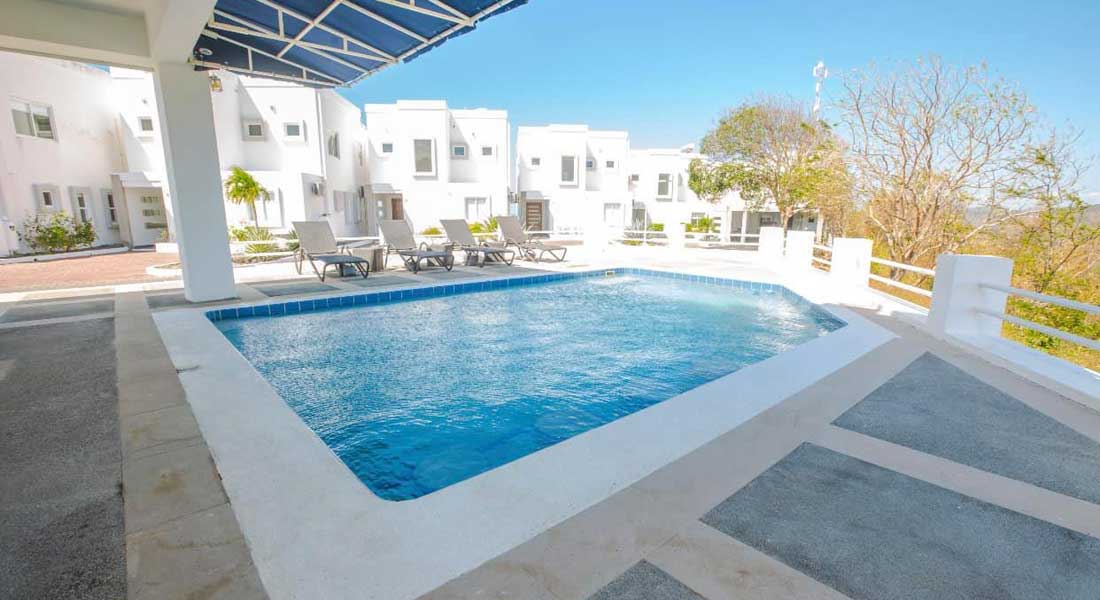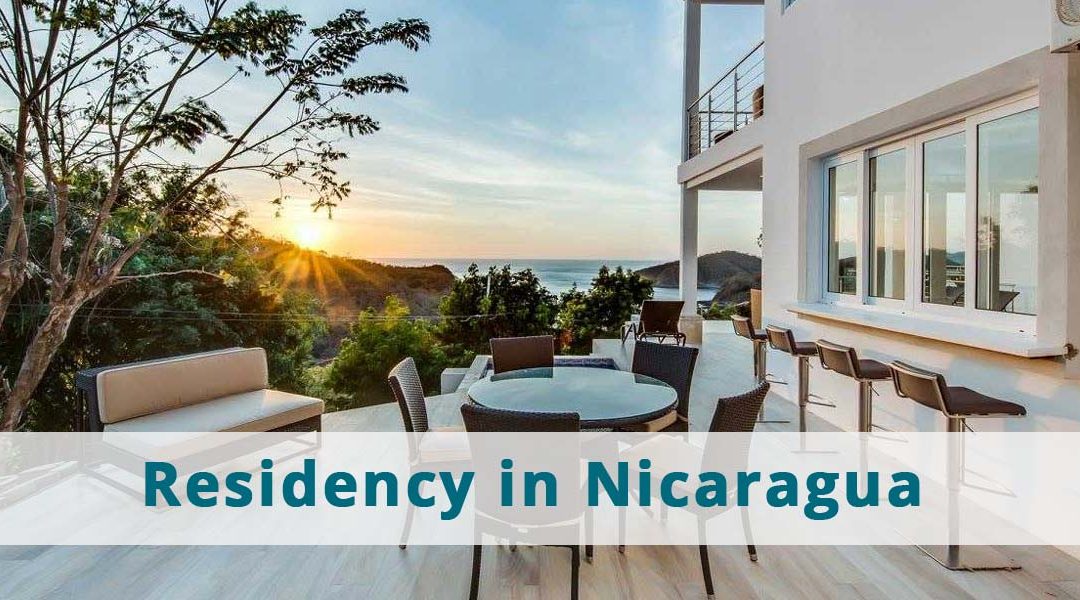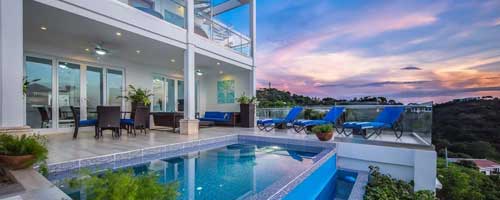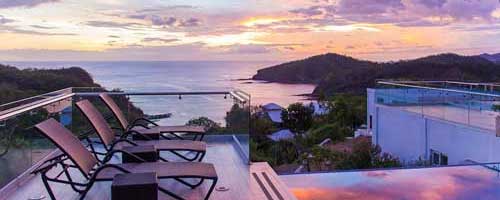Residency in Nicaragua / Is it easy to get citizenship in Nicaragua?
If you are looking for a second home, Nicaragua is a great place to consider. Besides being near the US and Canada, it boasts one of the lowest living expenses in all of the Americas as well. The low cost of living and the high quality of life attracts many ex-pats to remain here for the long haul.
There are many individuals who want to reside in this beautiful country with mountains, beaches, and old colonial towns. The cost of living in Nicaragua is reasonable. In addition, the property is cost-effective and of high quality. Nicaragua is the same as North America in terms of time zone, which is ideal for remote workers. No taxes are imposed on worldwide income. Instead, residents in Nicaragua are taxed solely on income derived from Nicaraguan sources. Additionally, there are a number of foreign schools and a variety of inexpensive healthcare services.
You can see how cheap it is to live in Nicaragua by comparing the monthly cost of an 800 square foot apartment in Nicaragua to those in the United States. For example, the US electricity bills will be $125-180 for the month, while the cost in Nicaragua is just $15-60. You have to spend between $50 and $100 a month on water in the US, but just between $12 and $15 in Nicaragua.
For those contemplating applying for a second residency in Nicaragua and would want to understand more about the procedure, the information given below will assist you and answer your question of “How do I become a resident of Nicaragua?”
First things first:
In Nicaragua, you don’t have to be a resident or a citizen to purchase a property. Foreigners have the same rights as natives when it comes to buying property and owning businesses in the country. For inhabitants of most countries, the Nicaraguan tourist visa is valid for 90 days. In other words, if you’re going to be here for a few months, you may not need it. For now, at least. You may alternatively go to Costa Rica for a fast border crossing and obtain a fresh 90-day visa.
Honduras, El Salvador, Guatemala, and Nicaragua form the CA-4 group. This means that if you go to any of these countries, you won’t get a new passport. But Costa Rica is not a member of the CA-4. Even spending an hour in Costa Rica makes you want to return right away. The majority of ex-pats are in San Juan del Sur. Therefore, it works better there.
“Permanent tourists” are individuals who choose to continue this procedure for years. A few years ago, the authorities began to clamp down on this, interrogating individuals at the border about why they were coming in and out so often. But in the past two years, the Immigration Department has returned to the practice of letting individuals in and out with a grin on their faces. To the government, foreigners investing money in the country is a boon. You don’t need to live in this state in order to own property. On the other hand, it has benefits as well.
You may register and insure a vehicle under your name if you have a residence. And many people start and run businesses in the country with a corporation and without a residence permit. However, depending on how you want to operate in it, what kind of business it is, and where it is situated, you may require residency to do so. However, overall, applying for residence is beneficial for those who are planning to settle in Nicaragua for the long term or who are already investors in the country.
On your own, you can apply for residence, but it is a hassle. Some people, especially those with patience and excellent Spanish language abilities, are able to negotiate the complex process that is the immigration office. The majority of successful applicants for residence, on the other hand, seek the assistance of an agent or an attorney. There are a lot of excellent real estate agents in the main metropolitan areas.
Visa
Each traveller’s passport must be valid for a period of at least six months from the date of entry into the nation. Citizens of the United Kingdom, the United States, El Salvador, Guatemala, Scandinavia, Honduras, Argentina, Bolivia, Chile, and the European Union do not require visas. They are issued a tourist card (worth US $10) that is valid for 90 days upon the arrival. Citizens of countries such as Australia, New Zealand, Canada, and Europe who do not have reciprocal arrangements with Nicaragua will be required to get a visa or a tourist card, which will enable them to remain for a maximum of 30 days.
However, visitors to Nicaragua for business are generally free from the need to acquire an exit permit. Those who need visas must also obtain an exit permit. When departing Nicaragua, there is a $35 departure tax. If it isn’t included in the ticket price, you’ll have to pay it at the airline counter when you leave the country, although it is occasionally included.
Residency
The retirement regulations in Nicaragua reflect the old pensionado rules of Costa Rica from the 1980s, which attracted thousands of ex-pats to that nation. The people’s friendliness is as important as any other feature, such as the tropical environment, affordable property prices, or appealing government incentives for expatriates living in Nicaragua. While retirement benefits are easy to qualify for, the government’s retirement program is a determining factor since it’s simple to be an eligible retiree and the benefits are comparable to those in nearby nations.
To encourage retirees and pensioners to come to Nicaragua, the government enacted a law. The Resident Pensioners and Retirees Law provides advantages in the form of tax incentives for the majority of residents. Nicaraguan authorities will need proof that you are a citizen of the country where your nationality is claimed, in excellent physical and mental condition, in good standing with the police, and that you have a monthly income of at least $600 from Social Security or your pension in order to qualify. For each dependent member of the family residing with you in Nicaragua, add an extra $100. To be eligible, a person must be at least 45 years old, although this requirement may be modified if the applicant has a steady income.

Categories of Residency
Foreign Investor
To live in Nicaragua, one must spend at least $30,000 on the country’s economy in any sector. In order to be considered for this position, you must have already founded, purchased, or invested in a company. When companies are formed, it usually takes the format of establishing a company. The organization must be organized in the proper manner.
Pensioner
Ages 45 and above are eligible if they have a secure income in the future. The income requirements for pension income must be at least $1,000 per month per person, with an additional $150 if they are a couple. In all, retiree couples will spend $1150.
Rentista
Similar to the pensioner, it applies to individuals whose income is derived from assets rather than their pension. This category is tricky to apply since the revenue generated through investments, equities, and dividends may be all over the place.
Employee
A Nicaraguan company could help an employee get a permanent residence. In most cases, the residence is valid for one year, and after three years, it may be extended for a further five years.
NGO/Missionary
A legitimate Nicaraguan non-governmental organization (NGO) or eligible religious group must support the application and show evidence of its activity and legal existence in the country. The majority of the time, residency is given for one year.
Spousal
Most of the time, this category is more straightforward, needing just the necessary papers and a marriage certificate.
Paperwork
The Immigration Department’s website, Dirrection General de Migracion y Extranjeria, provides the application criteria in Spanish only. Triplicate copies of all papers must be provided.
- Application form
- Passport (original with colour photocopies)
- Scanned copy of your local ID
- Passport-sized photographs on a white backdrop, without glasses or headgear; ears and forehead must be visible.
- Birth Certificate
- Copy of the Investment Registry Certificate issued by the Economic Ministry (MIFIC)
- Criminal Record Check: verified by the Nicaraguan Consulate as well as the Ministry of Foreign Affairs, apostilled, or, in the absence of this, the Interpol Nicaragua Certificate. For a fee of $25, Interpol in Managua may supply this paperwork.
- A health certificate issued by the competent authority of your place of origin or prior residency or by the Nicaraguan health authorities must be shown to the immigration officer.
Documents classified by category
For investors: Copies of the company’s articles of incorporation
For retirees: Pension correspondence
For rentistas: Investment income proof
For spouses: Marriage certificate
A complete and thorough list of imported housewares and vehicles is needed. This is not necessary for the residence procedure but will be required to process the items and vehicle.
Other papers, particularly for investors, retirees, and rentistas, would very certainly be needed to support your specific application. You can obtain this information from your lawyer/agent or the immigration representative.
Document Verification
If you are from one of the 114 nations that signed the 1961 Hague Convention, your papers may be apostille-certified, which is an international certification comparable to notarization. Except for Canadians, who must have their papers certified in Canada before sending them to the Nicaraguan Consulate in Washington, DC, Documents may also be authorized at the Canadian Consulate in Managua in certain circumstances. Before departing Canada, find out what documents may be verified in Nicaragua.
Documents from the applicant’s home country must be verified by the closest Nicaraguan Consulate inside the issuing nation in order to obtain an apostille. Documents in the United States must be notarized and verified by a County Clerk or Secretary of State.
Process Length
Once the application has been filed, the typical waiting period will be between 3 and 6 months as of April 2020. It’s also essential to keep in mind how applications are handled. The Immigration Department will inform you if you have not submitted any documents and request the missing items.
As a result, when you resubmit your application with a new document, your application is relegated to the “bottom of the priority list.” This may result in months of additional wait time. Once you have submitted all of the papers, make sure you include apostille or notary certificates, as well as translations. This is when a lawyer or real estate agent really earns their fee.
It would be best if you also kept in mind that police and health certifications must be obtained within a certain time frame. They are only valid for six months from the date of issuance. A police record check and health certificate may only be obtained if you have all the other required papers. They will remain valid throughout the procedure as long as the certificates are valid at the time of submission.
The majority of residencies have five-year durations. Investor, rentista, pensioner, and spousal visas are available. NGO volunteers, employees, and missionaries are the most common recipients of one-year residency.
Resident obligations
- With the exception of investors, you must spend nearly half the year in Nicaragua. There is no time restriction for investor class residents.
- You must obey the law.
- After every five years or when it expires, renew your cedula.
- It is not permitted to engage in political activity.
- Proof of investment or pension income should be submitted to INTUR if appropriate.
Applying on your own will cost you:
Investor: 6400 Cordoba = $213 USD, including inspection fees. MIFIC does not charge for the inspection, but the investor is responsible for covering the inspector’s transportation and stipend expenses to travel from Manágua to check on the investment.
Pensioner/Rentista: $197 (5900 Cordoba)
Spousal: $197 (5900 Cordoba)
Other categories: $197 (5900 Cordoba)
The application cost for the government: $500 As of September 2020, this will be a new requirement for all applicants. On top of the costs listed above, most attorneys and agents will charge between $700 and $1000 for their services. In many cases, hiring a translator or notary is more cost-effective than making numerous trips to Managua and spending the time and money translating and notarizing papers yourself. The application fee must also be paid again if your application is denied due to insufficient or defective documentation.
Is it easy to get citizenship in Nicaragua?
First, let’s talk about the process. Citizenship takes many years to get. As a first step, one must acquire legal residency status inside the country. One-year or five-year residence options are available when applying for a residency. Nicaraguan citizenship is typically available after one or two renewals. As long as you have a valid visa, you may apply for permanent residency.
In order to be eligible for this position, you must pass a test on Nicaraguan culture and history. For the exam, you’ll need to be fluent in Spanish. As with the residency procedure, you may need the assistance of a lawyer who is acquainted with the process and is familiar with the Immigration and Nationalization staff, or a person who is familiar with the process and can help you. Once all documentation has been completed and filed and neighbour interviews and personal interviews with government inspectors, the immigration authorities will examine the papers and make a final determination on whether each applicant should be given Nicaraguan citizenship. Once or twice a year, a date is chosen for the actual swearing-in ceremony once all criteria have been met and immigration officials have given their permission.



